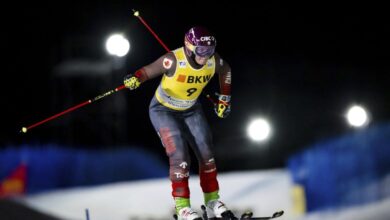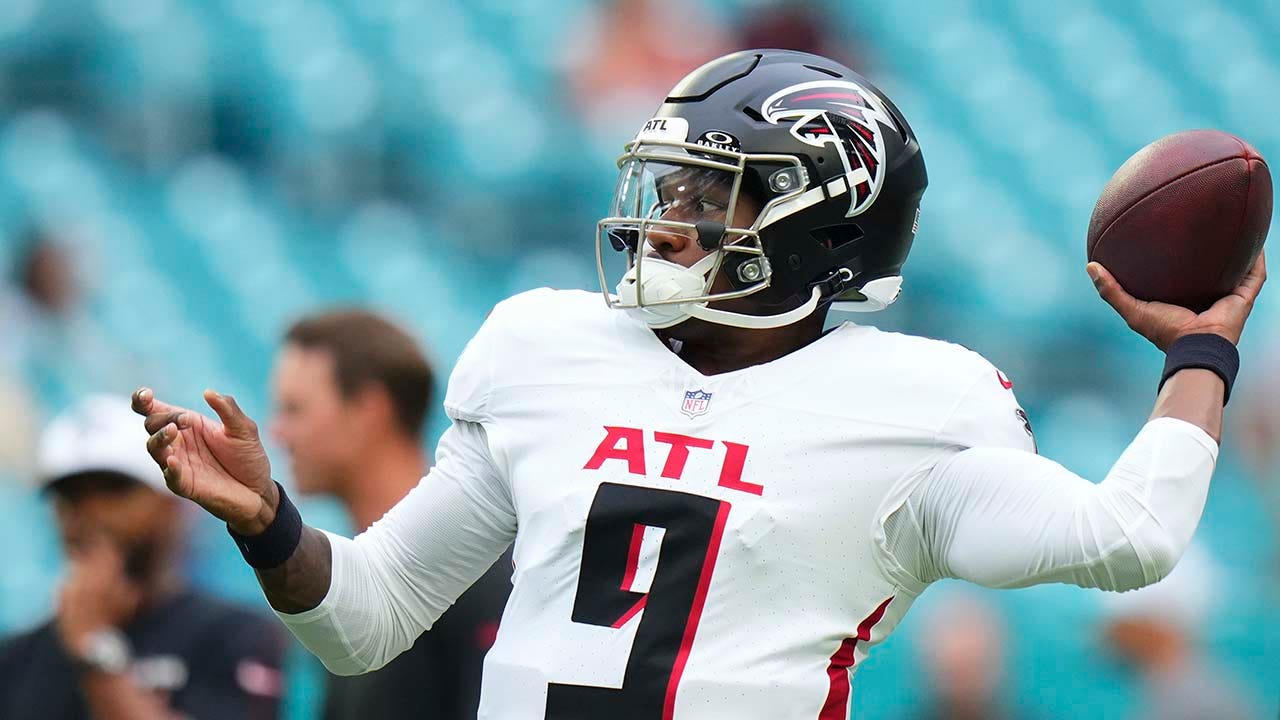Former university athlete says COVID stopped him from running — wants people to mask again

A Tecumseh, Ont., native who brought awareness to the ongoing COVID-19 pandemic by running a marathon while wearing a hospital gown is now dealing with the effects of long COVID.
Evan Ubene, who’s set to graduate with a master’s in chemical engineering at McMaster University in Hamilton, says last year he was also trying to highlight the need for proper personal protective equipment for health-care professionals.
Wearing the hospital gown ended up breaking a Guinness World Record at the Toronto Waterfront Marathon.
Fast forward to today, the 27-year-old is now attempting to once again raise awareness about the pandemic after contracting the virus for a third time in June — and still feeling the impacts.
Windsor Morning10:01Ongoing COVID
Evan Ubene, a runner from Tecumseh, speaks with CBC Windsor Morning host Nav Nanwa about his ongoing battle with COVID.
The longtime runner competed for McMaster’s track and field team for a handful of years.
Ubene addressed his concerns regarding the health-care sector with Windsor Morning host Nav Nanwa.
Here’s part of that conversation.
Back in June, when you caught COVID for the third time, what were some of your initial symptoms?
The symptoms I’ve been experiencing have been mostly shortness of breath, which is not great for running, and also kind of like muscle weakness and headaches that I kind of get if I exert myself too much.
But just really quickly, I wanted to mention there are a lot of people who are experiencing symptoms that are far worse than mine, and we could be doing very easy things to drastically reduce this number.
It wouldn’t even really impact our day-to-day lives that much. And as far as like, you know, wearing a mask, that’s about it.
We would cut a bunch of cases down just by doing something like that. And improving air quality is another thing.
Have you officially been diagnosed with long COVID yet?
Not officially.
The generally accepted definition is 12 weeks since the start of your infection.
For me, it’s been about 11 and a half.
So you’re approaching that threshold?
Yeah, pretty much.
I do think that I will eventually improve just based on how my symptoms have gone in the last few weeks, like slowly improving.
But obviously with new COVID variants circulating, there’s always a chance of getting infected again.
And for me, each time I’ve gotten infected, the long term symptoms have gotten worse.
WATCH | Doctor answers your questions about the new COVID-19 vaccine:
Infectious diseases specialist Dr. Lynora Saxinger answers viewer questions about the newly approved COVID-19 vaccines, their effectiveness against the latest variants and the best time to get another shot.
Based on what’s lingering right now, how has that impacted your life as both a student and an athlete?
As an athlete, I basically can’t be an athlete right now.
If I go for a run or try to go for a run like I normally would, which was around 100 kilometres a week of training … Right now if I do a five kilometre run the next two days, I’m kind of struggling to breathe well and experience headaches.
What are you doing right now to cope with these symptoms? Are you taking any medication?
I’m lucky. There are people who are experiencing far worse symptoms than I have.
I’m able to go about my normal activities, at least, which some people experiencing long COVID cannot do.
But aside from that, a doctor prescribed me an inhaler. It helps a little bit with inflammation in the lungs.
The relief is somewhat temporary.
We live in a fascinating time where restrictions are pretty much nonexistent. Mask mandates have disappeared, but new variants are arising. When you think about all these things and what you’re currently dealing with personally, what goes through your mind?
I guess I like to call them protections, not restrictions, because in my view, if we do things like wear masks or improve air quality, our ability to participate in society goes up, not down.
I can’t run right now. Lots of people with long COVID can’t do things in society right now.
The most vulnerable people who cannot get COVID cannot go to risky places … anywhere indoors right now.
I don’t like to call them restrictions. I think they’re protective measures that we can take to improve our lives.
What protective measures are you taking in your life right now?
I still wear a mask everywhere I go indoors, I wear N95 masks, which are quite a bit better than the surgical ones, especially if they’re fitted.
I also don’t go to restaurants or bars.
The one time I did since the start of the Omicron phase of the pandemic, that was the second time I got COVID.
WATCH | Worried about flu season, COVID? What to know about vaccines and masking:
As fall and winter approach, cases of COVID, RSV and the flu are expected to rise. Ontario’s Chief Medical Officer, Dr. Kieran Moore, spoke to CBC’s Lorenda Reddekopp about how to reduce your risk of getting sick.
Honestly, the only times I have gotten COVID are from my roommates at home. I wear a mask at home, too, because if I got a fourth COVID infection I don’t know what would happen.
And then the only other time [I got COVID] was at a restaurant that I went to without a mask.
So the only times I’ve gotten it are cases where I wasn’t wearing a mask.
A year ago you broke a world record when running the Toronto Waterfront Marathon as a hospital patient. Now, before the infection, were you hoping to try to break that record this year?
I was thinking about things to do.
It’s clear that there’s not a lot of public awareness about the true state of public health right now in regards to COVID and other respiratory infections.
LISTEN | Ubene speaks with CBC in October after running a Toronto marathon dressed as a patient:
Windsor Morning8:14Toronto Marathon runner
Evan Ubene, a marathon runner, speaks with CBC Windsor Morning host Nav Nanwa about running in the Toronto Marathon, wearing a hospital gown.
What’s being published by academic journals and even by the Canadian and provincial governments is not reaching the level of public awareness.
So people don’t know these things, unfortunately.
By doing these protective things, it might be a minor annoyance, but the benefits far away, you know, the minor annoyance of just putting on a mask or, you know, paying attention to your symptoms.
Get the news you need without restrictions. Download our free CBC News App.






